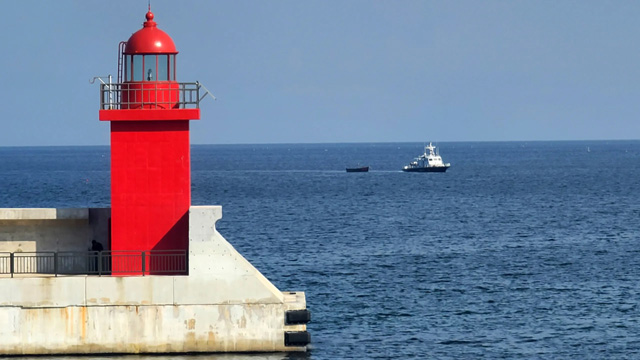
SEOUL, Dec 6, 2023 (BSS/AFP) - One stormy night in May, Kim loaded his family into his home-made wooden boat and sailed away from North Korea, hoping to give his children a life of freedom.
Tens of thousands of North Koreans have fled to South Korea since the peninsula was divided by war in the 1950s, but most go overland to neighbouring China first.
Defecting by sea is extremely rare and seen as far more dangerous than land routes, with only a handful of people making it across the de facto maritime border, the Northern Limit line.
But Kim, a 31-year-old fisherman who asked that AFP use only his surname for security reasons, was confident he could pull it off -- and, after two failed attempts, he finally managed to get his family of nine out of the country.
For months, he studied border patrol patterns and waited until an opportunity arose: when North Korea started lifting its coastal blockades after the Covid pandemic lockdown.
"I studied the terrain and weather conditions and set out on the worst night when there was a sea warning in effect," he told AFP in Seoul.
Everyone in his family -- even his three-year-old -- worked together to ensure the success of their escape, he said.
- 'Anything is possible' -
"It feels like I was born a second time," Kim said.
"In the North, planes flying in the sky were something I only saw in my dreams, in movies and in TV dramas, but now I can actually ride it and it feels like I've been born in my next life."
After months of debriefing, Kim is now ready to move on with his new life, and attended a major job fair for North Koreans organised by authorities in South Korea -- the first such event in nine years.
Some defectors have struggled to integrate. Decades of division coupled with South Korea's rapid economic development, mean there are linguistic, cultural and practical challenges to overcome.
The job fair is one of many initiatives organised by the government that seek to assist defectors.
Kim was visibly blown away by dozens of job possibilities at the fair held at the COEX Convention Centre, in which about 100 companies and public institutions took part.
"Since I come directly from the North, I'm quite surprised that such a culture exists," he said, clutching a pile of employment brochures.
Kim, who spent years working in North Korea's fishing industry, said he had long dreamed of being a ship navigator -- something that was impossible in his former home.
North Korea's shipping industry is tightly controlled, with access to jobs very restricted, and dependent on having the right background and connections.
"For ordinary people, (becoming a navigator) could only be a grandiose dream," Kim said.
"But here, I heard that anything is possible if you put in a little effort, so I'm going to give it a try."
- 'Absurd brainwashing' -
Kim had led a quiet, diligent life in North Korea, working towards owning his own boat one day.
He started off as a crew member on a fishing boat and then learned to dive to make more money.
Kim eventually earned enough to build a wooden boat, which he operated for around five years before setting out on his risky sea voyage to South Korea.
He told AFP that he decided to defect after his children returned home one day from an "absurd brainwashing session".
"I wanted them to be able to do, to say, and to see whatever they want, which basically does not exist in North Korea," Kim told AFP.
"I wanted to show them that there is a better world, that there is a bigger world out there," he said.
"You can lead a stable life in North Korea now if you plan well and work hard, but there is no freedom."